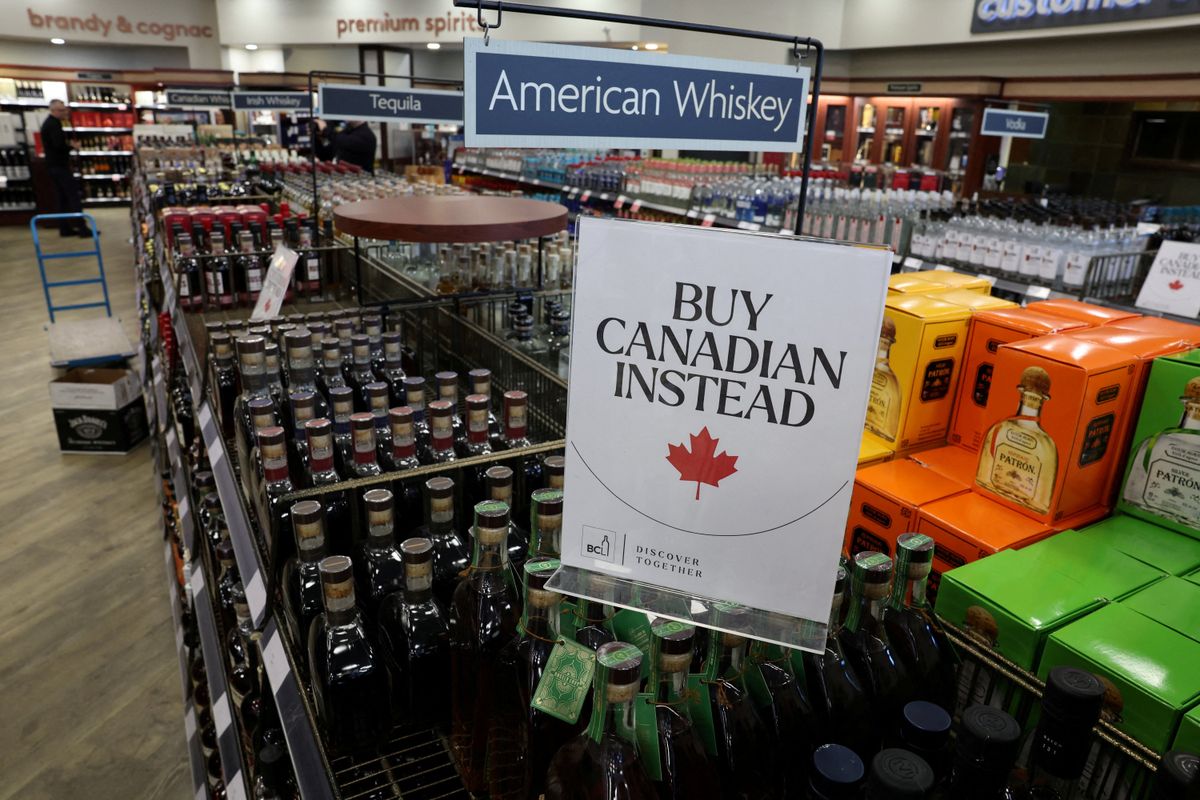
Owners of U.S. distillers and vineyards are watching in dismay as their sales into Canada have gone into free-fall due to a boycott linked to Donald Trump.
According to a report from the Wall Street Journal, it has become almost impossible to find U.S.-produced spirits on the shelves in Canada, after the president declared a trade war with America's northern neighbor.
In retaliation, as the Journal is reporting, “Canadian provinces, which largely handle alcohol imports and distribution in the country, stopped placing orders for American-made spirits, beer and wine,” with stock on the shelves swiftly replaced with Canadian brands.
Six months into the boycott, the Journal’s Laura Cooper and Vipal Monga are reporting, “The Distilled Spirits Council, an industry group, estimated exports of U.S. distilled spirits to Canada at $43.4 million over the first six months of 2025, down about 62% from the same period in 2024. Exports of American wine were about 67% lower, the group said, citing U.S. trade data.“
In Canada’s largest province, Ontario, sales have flat-lined.
According to the report, the 688 stores operated by the Liquor Control Board of Ontario last year “sold more than $700 million worth of American liquor and wine, sales that have now dwindled to zero.”
Robert Koch, the chief executive of California’s Wine Institute, told the Journal, “The absence of U.S. wine from Canadian stores is not just a market disruption, it’s a breakdown in a trusted relationship built over decades. This is not just about wine. It’s about farming families, rural jobs and businesses that depend on access to international markets.”
You can read more here.




